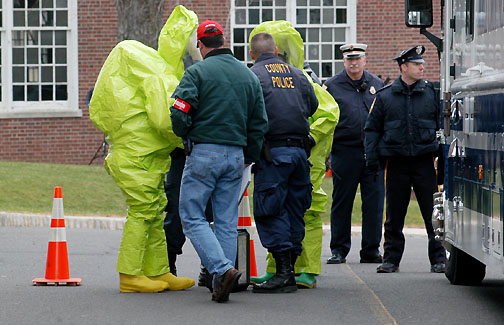Several ethical arguments surround the creation and use of biological weapons in warfare. A main issue is the topic of the immorality of harming and potentially killing humans. This issue is so prevalent because the founding purpose of biological weapons is to threaten life, not only in humans but also in all organisms. The ethical debate over the use of biological and chemical weapons closely resembles that of nuclear weapons. These forms of warfare are not only extremely effective and dangerous, but have the great potential to affect many more humans than intended. Another aspect of the ethical debate is the continued developments being made in biotechnology. Medicines and treatments involving bacteria and viruses are being created in the world of biotechnology, many of which have the potential to be altered and transformed into devices of war. The topic of debate is whether or not funding should be provided to come up with new technologies that could potentially be used to kill humans. The debate questions the ethicality of starting research for new products in the first place, knowing that they have the possibility of being turned into a weapon. The debate on the subject of biological warfare and weaponry production is not as multifaceted as, perhaps a potential development for the cure of a disease. The issue of the morality of killing is basically the center of the debate, whereas in other debates the possibility of sacrificing a few to save many would be up for discussion.  |

The legal debate over the use of biological weapons is not a new problem, but has been ongoing for many decades. The Geneva Protocol of 1925 provided for the restriction of the use of biological weapons in warfare. The Biological Weapons Convention of 1972 was responsible for ordering the destruction and outlaw of all toxic and biological weapons in existence. The United Nations were responsible for the decisions made in these meetings, revealing a seemingly common desire among global powers to strive for peace and the preservation of human life. In 1992, the United Nations met again to discuss the issue of biological and chemical weapons and to update the decrees that came from previous conventions. This meeting became known as the Convention on the Prohibition of the Development, Production, Stockpiling and Use of Chemical Weapons and on their Destruction, or the Chemical Weapons Convention. However, the decrees that arose from these conventions have not completely stopped the production and trade of biological weapons. Advanced biological weapons will become more common as more biotechnological innovations arise, and rogue nations and terrorist groups will most likely be competing to gain control of this highly dangerous and volatile weaponry. The policies decided upon by the deliberations within the United Nations may become progressively more difficult to enforce as innovations arise, as the detection of dangerous biological weapons may become more difficult. |
|